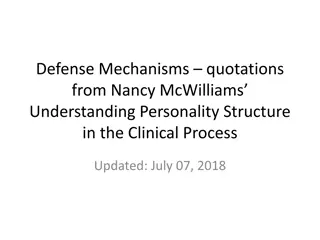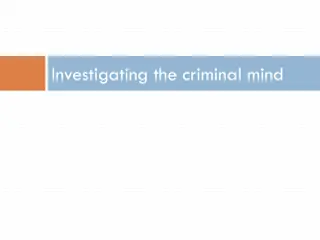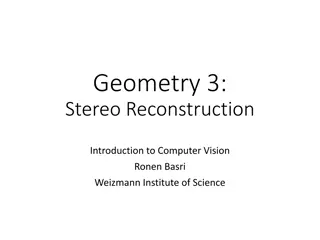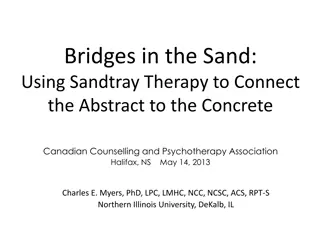Introduction to Projective Diagnostic Assessment
Projective diagnostic assessment is a technique used to reveal subconscious psychological states by presenting ambiguous stimuli for individuals to project their thoughts and feelings. This method helps uncover unconscious conflicts and allows for personality assessment through the interpretation of
4 views • 12 slides
Exploring Defense Mechanisms in Personality Structure
In "Understanding Personality Structure in the Clinical Process" by Nancy McWilliams, various defense mechanisms are illustrated through real-life examples. These mechanisms include primitive withdrawal, denial, omnipotent control, idealization and devaluation, and projection with projective identif
1 views • 29 slides
Automatic Schedulers through Projective Reparameterization
Explore the challenges in machine learning for systems and learn about automatic schedulers through projective reparameterization. Discover motivating applications like instruction scheduling and efficient schedules. Introduce the EPOCS operator for learning under dynamic constraints and imitate GCC
0 views • 19 slides
Unraveling the Criminal Mind: A Look Into Forensic Psychiatry
Delve into the realm of forensic psychiatry where examining physical evidence helps uncover the who, what, and how of crimes, while forensic psychiatrists focus on determining the why. Contrasting clinical and forensic psychiatry, the role of forensic psychiatrists involves assessing various aspects
0 views • 13 slides
Introduction to Stereo Reconstruction in Computer Vision
This material covers the fundamental concepts in stereo reconstruction, including the pinhole camera model, perspective projection, epipolar geometry, essential and fundamental matrices, camera calibration, homography, and projective geometry. It also discusses stereo vision and 3D reconstruction fr
0 views • 41 slides
Understanding the Differences Between Objective and Projective Tests
Objective tests aim to maximize objectivity by providing structured response options, while projective tests delve into hidden emotions and conflicts through ambiguous stimuli. Pros of objective tests include standardization and reliability, but projective tests offer unique insights based on indivi
0 views • 10 slides
Exploring Sandtray Therapy: A Path to Healing and Connection
Sandtray therapy is a powerful modality that allows clients to explore and process deep-seated issues through the use of symbolic sandtray materials, guided by a trained therapist. This expressive and projective form of psychotherapy is effective for individuals of all ages, including children, adul
0 views • 26 slides






